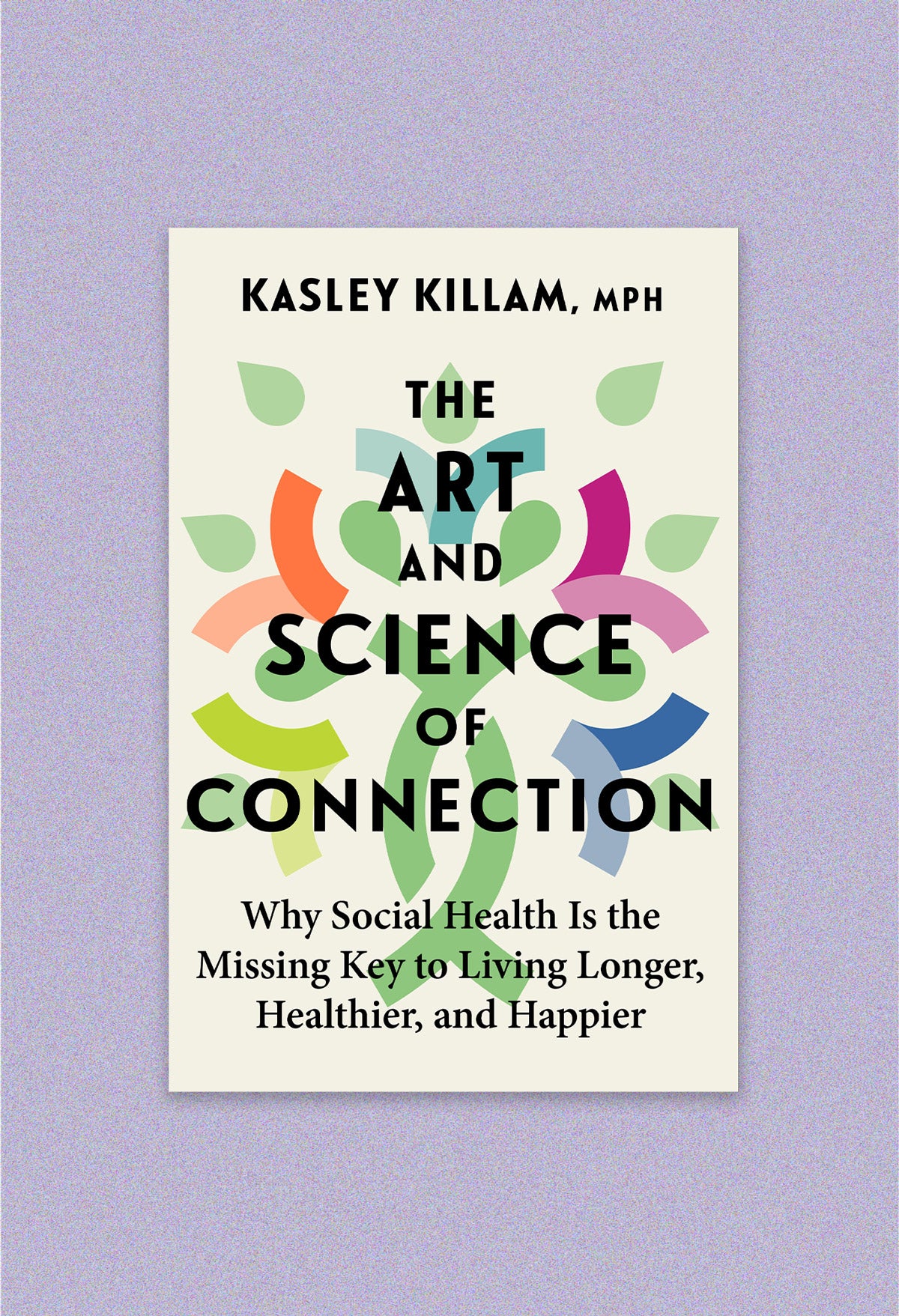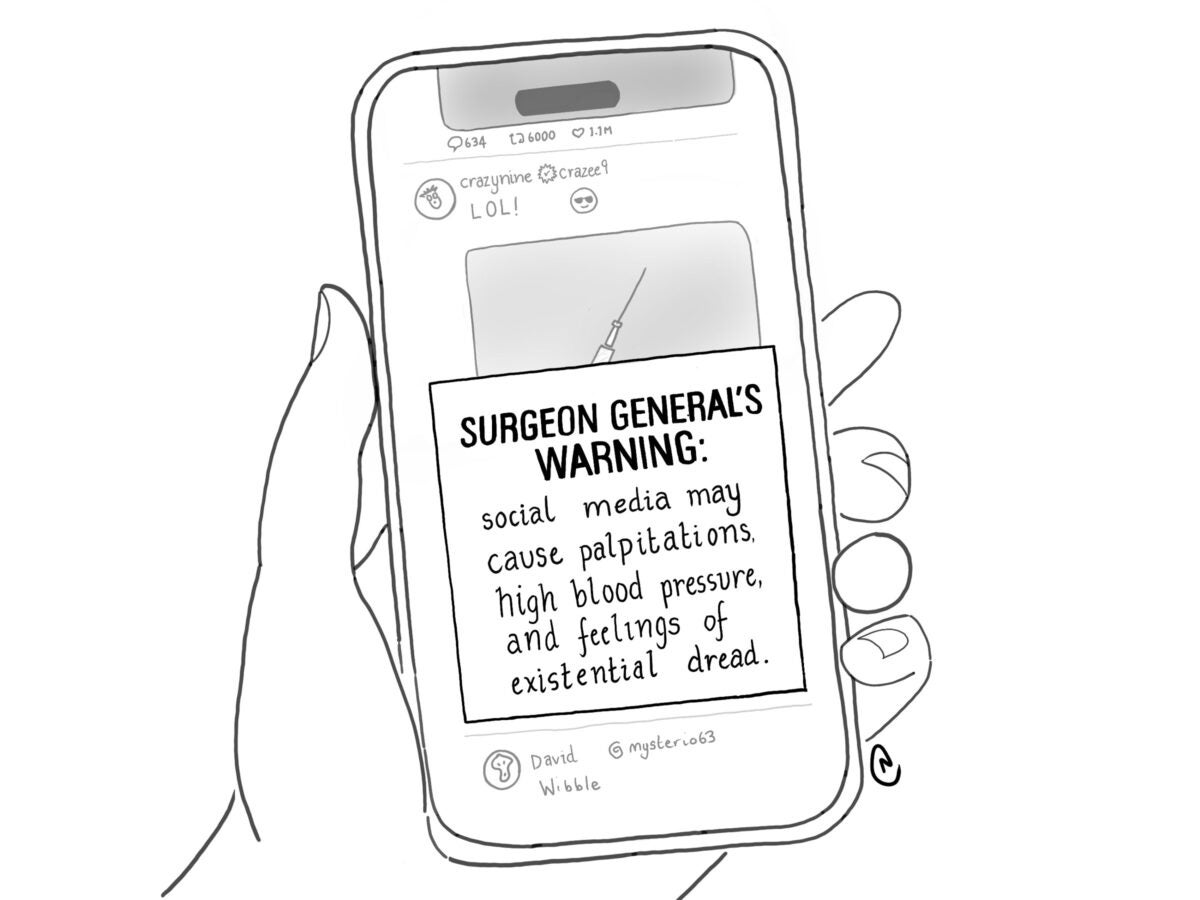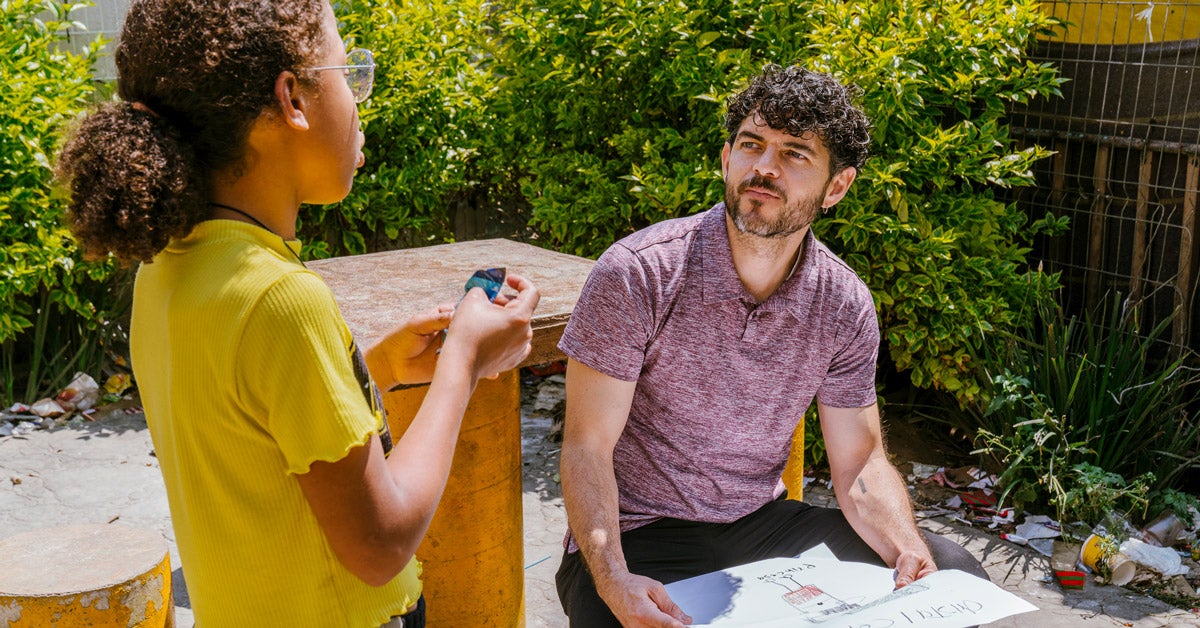
Book
How to strengthen your social muscles
Social scientist Kasley Killam wants you to know that spending time with people you love is good for your health.
She studies social health, which focuses on wellbeing related to human connections. A growing body of evidence links such interactions to physical health outcomes, including longevity. A 2021 analysis of studies that collectively enrolled nearly 1.5 billion participants from around the world found that people were from 11 to 53 percent more likely to die from any cause if they had poor social health, as measured by things like the strength of their family ties and the frequency of their social contact. Research suggests the link may be causal.
Social health was first defined in 1973 by Robert D. Russell, a long-time professor of health education at Southern Illinois University. Killam encountered the term in 2013 as a research fellow at Stanford and was surprised to find not much work had subsequently been done on the subject. She spent the next decade expanding understanding of social health and elevating it as a wellness practice.
A self-described introvert, Killam found that social health does not require being a social butterfly, though that is one of four styles she identified in her book, The Art and Science of Connection. Each style has its own social needs and approaches to connection. A quiz she developed about the styles with the New York Times has been taken by people around the world, which she says has her excited about studying social health in different cultural contexts. She talked with Harvard Public Health senior editor Amy Roeder.
This interview has been edited and condensed.
HPH: How did you first get interested in social health?
Killam: In my last semester as an undergraduate, I did a personal experiment where I did an act of kindness every day for 108 days. The number 108 carries quite a few auspicious meanings, but most importantly to me, it’s the number of beads in a Buddhist mala used in meditation. Acts of kindness were my daily mala beads. The experiment was transformative, opening my eyes to the opportunities for connection all around me and showing me the value of prioritizing social health.
Sign up for Harvard Public Health
Delivered to your inbox weekly.
HPH: What are the mechanisms linking social health and physical health outcomes?
Killam: One theory with a lot of evidence is the idea of stress buffering. Loneliness is a very stressful experience, especially when it’s prolonged. It can lead to heightened levels of cortisol and increased inflammation. Over time, this can make us more susceptible to illness and disease. In contrast, when you feel connected and have supportive relationships, it can buffer against those pathways, and actually help us prevent disease and be healthier.
Another mechanism is through social norms. For example, when you have friends who encourage you to adopt healthy habits like eating good foods, who model exercising regularly, or who invite you to go do activities, those kinds of things are going to influence your health. So, the mechanisms are both biological and behavioral.
HPH: You’ve talked about wanting to shift the conversation on loneliness away from fixing what’s wrong to promoting what’s right. Why is that distinction important?
Killam: Loneliness is just one sign of poor social health. And talking about loneliness can be off-putting and actually make people feel worse. However, framing a conversation around social health, connection, and community is empowering and uplifting. It’s just a mental shift that helps make the conversation more approachable to a lot of people.
HPH: What types of interventions are needed to address social health at the population level?
Killam: Action is needed across different sectors of society—health care, education, design and technology, government, business. That’s actually empowering because it means each of us has a role to play and can make a difference.
I think social prescribing is very promising. There are going to be challenges with implementation, but it’s something that needs to be considered. I’ve also been very inspired and learned a lot from a program that we launched at my nonprofit, Social Health Labs, in community micro grants. We’ve given $1,000 grants to individuals across the U.S. to do projects in their local neighborhood to bring people together and improve social health. [One of them is] Haley Ingersoll, whose project blossomed into the grassroots group Pittsburgh Social Health. The power of one person taking action and then seeing the ripple effects of that is really incredible.
HPH: If people take one thing away from your book, what do you hope it will be?
Killam: No matter who you are, no matter your circumstances, no matter your personality, there are steps that you can take to strengthen your own social muscles and improve social health in the community around you.
Book cover: HarperOne


